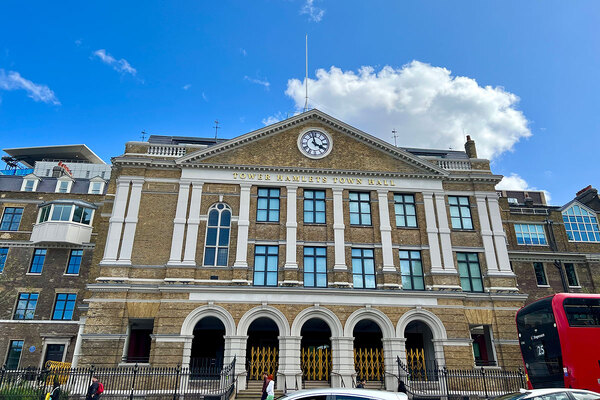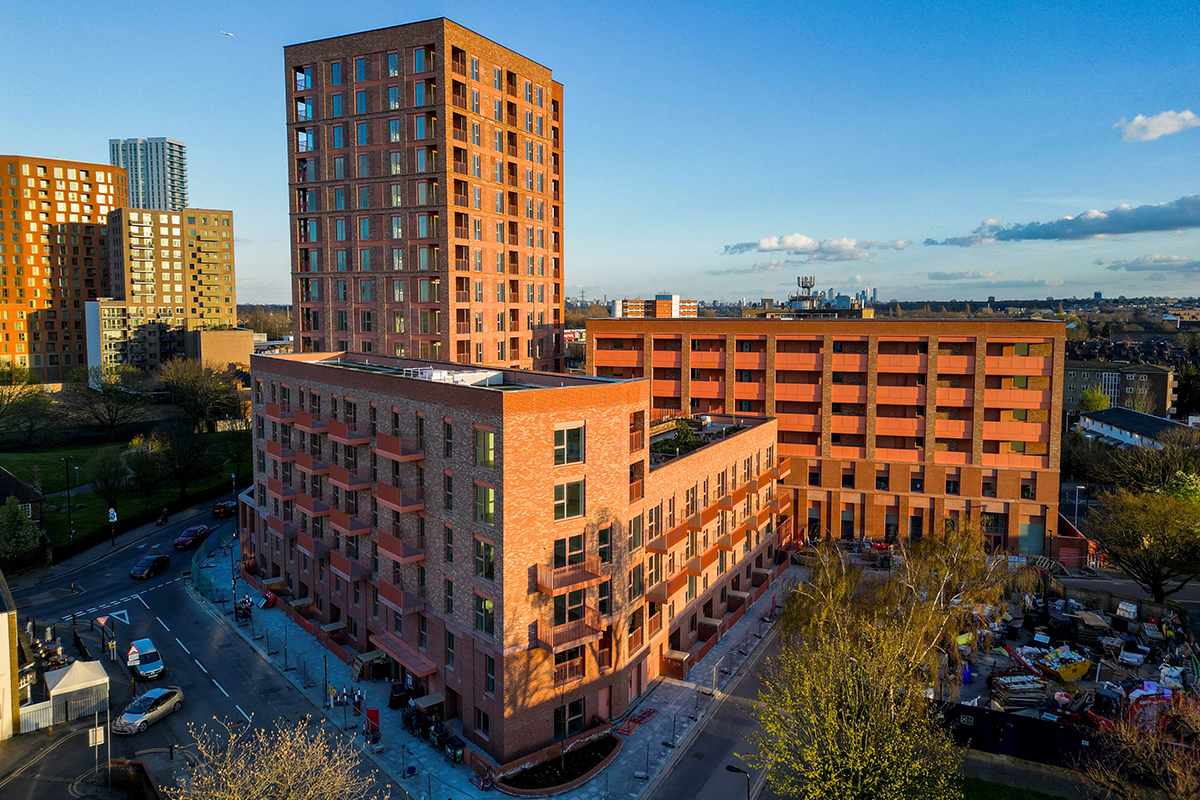No way through
As they come under increasing pressure, some councils are shirking their responsibility to take homelessness applications seriously. Kate Youde investigates the practice of ‘gatekeeping’
When a council officer told Sarah Jones*, ‘It’s not like someone held a gun to your head,’ she failed to appreciate the level of violence the homeless woman in front of her had suffered. The abusive partner Ms Jones escaped had, in fact, once threatened her with a gun.
The conversation is one reason why the 25-year-old, who fled Leicester with her seven-year-old daughter, feels the way Wandsworth Council has treated her is ‘disgusting’. The council decided to refer her homelessness application to another London borough because it said she had no links to Wandsworth. Ms Jones is appealing that decision in the county court.
The staff member’s comment referred to the fact that Ms Jones was staying in a refuge in Lambeth, an area where she does not want to settle. Wandsworth Council says Lambeth, where she lived for nearly a year, will offer her a permanent home. But Ms Jones says people who know her ex-partner have spotted her in Lambeth and so she is at risk there.
A Wandsworth Council spokesperson insists Ms Jones’ application has been correctly referred to Lambeth under local connection procedures and it will ‘defend [its] position robustly because it is important that homeless legislation is properly applied so that it is fair and just for all homeless applicants’. As her ex-partner has not made any attempt to contact or trace her, he adds, there is no reason to believe she would be at risk in Lambeth.
Ms Jones is not alone in feeling she is not getting the help she needs. Complaints to the local government ombudsman about how local authorities in England treat people facing homelessness are up 16 per cent year-on-year. So, what is going wrong and what should councils be doing?
Legal obligations
Under the Housing Act 1996, a local authority should accept an application for help from a person if they are homeless or threatened with homelessness within 28 days. While it makes enquiries and decides if it has a duty or not, the council must arrange temporary accommodation for someone if it has reason to believe they may be homeless, eligible for help and in priority need. Someone would be in priority need if, for example, they have dependent children, are pregnant, are 16 or 17, or are vulnerable, such as being ill, disabled or a victim of domestic violence.
However, some councils refuse to accept homelessness applications or provide interim accommodation without a legitimate reason - a practice known as ‘gatekeeping’.
Every year, the LGO receives more than 300 complaints from people affected by homelessness claiming councils are not complying with the law, and issues reports against those where it finds ‘maladministration causing injustice’. Sometimes the same local authority is criticised on multiple occasions in cases only months apart. Although the LGO has no legal power to compel councils to implement its findings, they usually do comply.
The body was so concerned that increasing numbers of people might face injustice as a result of rising homelessness and squeezed town hall budgets that it last summer issued a report to remind local authorities of their obligations. A focus report highlighted failings, outlined good practice and warned councils of the consequences - including being asked to apologise, pay compensation, reconsider a decision and improve procedures - if they do not meet their responsibilities. Yet a year on, complaints to the ombudsman are rising.
More complaints
In 2011/12 it received 415 from homeless people, up from 357 in 2010/11. Of the 415 complaints last year, 330 were forwarded to investigation teams. In 60 of these cases, the injustice was remedied during the ombudsman’s enquiries, with reports issued in two further cases. Eighty-four were not investigated, in 59 cases there was no or ‘minor’ injustice found, and in 110 cases there was not enough evidence. So far this year, 162 homelessness complaints have gone to investigation teams and three reports have been issued.
‘Clearly it is the case that local authorities often find themselves under pressure in fulfilling their obligations in relation to homelessness, particularly in more populated areas, and so those who are dealing with homelessness cases are themselves working in quite a pressurised environment, but that shouldn’t excuse poor practice,’ says ombudsman Dr Jane Martin. ‘Indeed, it seems to me that councils are obviously dealing with very vulnerable people because of the nature of the circumstances they are in and it’s all the more important for them to ensure that the people who come to them are given a fair hearing and supported in making their case, so that things are properly recorded and due process can be followed.’
In some cases, Dr Martin says, staff dealing with homelessness applications don’t have a full understanding of how to carry out the process, which can lead to delays. She points to her recent report on Hounslow Council, which did not take an application from a man with mental health issues because it considered he was not in priority need. ‘What we point out to them [is] this is actually irrelevant,’ she says. ‘The issue in this case was whether it had reason to believe this person was homeless or threatened with homelessness.’ The council accepted an application the second time the man applied but took nine months to decide it - an unreasonable delay, according to the report.
It was only in October last year that Dr Martin recommended Hounslow ensure officers dealing with homelessness cases were clear about their statutory responsibilities, after it failed to provide adequate help to a homeless woman fleeing domestic violence. A council spokesperson says it is ‘extremely sorry for the distress and delay’ caused by shortcomings in its service and accepts the ombudsman’s findings. The council has implemented a pilot merger of its homeless prevention and homeless assessment teams which, he says, has reduced delays.
Hounslow is not the only local authority guilty of neglecting its duties. In May, Dr Martin criticised ‘multiple failures’ by Southwark Council over the care and housing needs of a mother of two, who is epileptic and registered blind. In August, fellow ombudsman Anne Seex recommended Kent and Dover councils pay a 16-year-old £10,100 compensation after ‘inexcusable’ failures meant he spent nine months sleeping in a tent, sometimes in snow, or on friends’ sofas.
The latest figures show 12,860 applicants were accepted as being owed a main homelessness duty in England - out of 26,800 decisions made between 1 April and 30 June. That is 9 per cent up on the same quarter last year. There were 51,640 households in temporary accommodation on 30 June, a 7 per cent rise. In autumn last year, 2,181 people were sleeping rough - a 23 per cent increase on 2010.
But charities warn such figures fail to give the full picture. Research by Crisis found the majority of single homeless people are ‘hidden’ from statistics, support and advice. Most single homeless people are not considered to be in ‘priority need’ for social housing. The charity launched its ‘No one turned away’ campaign in October 2011 to highlight that, while they should get advice and assistance from councils, too often single homeless people are given little help or are turned away with none.
Outside the net
Victims of domestic violence are also often being turned away in an act of gatekeeping, says Julian Boyle, a housing solicitor at Birmingham Law Centre. ‘The council will say, “You don’t have children, you are not pregnant, we don’t think you are in priority need” and the whole catalogue of violence against them gets ignored really,’ he explains. Council staff ask for evidence, he adds, and seem to ignore the fact that the case has been referred by Women’s Aid. Deborah McIlveen, the charity’s policy and services manager, says there is a ‘real need’ for local authorities to ensure staff are trained to understand domestic violence and respond properly to survivors. Birmingham Council did not respond to requests for comment.
Giles Peaker, a solicitor at London firm Anthony Gold, says gatekeeping seems to be getting ‘more blatant’. ‘It can be very hard to show that a council has an unlawful policy: they always blame individual staff error or “mistakes”,’ he adds.
‘But any housing lawyer knows there are policies [in place]. For example, one London council had a form to be completed by their officer where the section on referring to the rent deposit scheme came before the sections on priority need.’ If that referral is made the form explicitly states that the council doesn’t need to continue with the homelessness application.
Avoidance tactics
Another tactic is to give somebody who presents themselves as homeless an application for the housing register rather than taking a homelessness application, which might immediately qualify them for temporary accommodation, according to solicitor Kristin Heimark, who has been a legal aid and volunteer lawyer in London. She says the ‘only effective weapon’ available to lawyers to challenge gatekeeping is judicial review.
‘Councils do not pay any attention to judicial review threats unless they are backed up with legal aid,’ she cautions. ‘They will try to brazen it out until you file proceedings. Once that happens, you tend to find they wake up. Maybe it’s because they’ve got some external advice or they don’t want to be ordered by the court, but most times it takes going that far for them to recognise their duties under the Housing Act.’
Could changes in the law bring changes in councils’ practices? This month, sections of the Localism Act come into force that will allow councils to discharge their duty to those who turn up for help because they are homeless with an offer of accommodation in the private rented sector. The tenancy must be for at least 12 months.
Toby Lloyd, head of policy at charity Shelter, says the incentive for councils to gatekeep ‘may drop dramatically’ as a result, because the offer of a 12-month private tenancy is a far smaller financial commitment than what they are currently required to offer. ‘It could well be that there will be less incentive to gatekeep and we may see them doing less of it and accepting more people as homeless,’ he says.
‘On the other hand, we may see fewer people bothering to go to local authorities saying, “I am homeless, help me,” because there will be no considerable advantage, because you will be just offered a private sector tenancy.’
The new legislation will not solve the underlying problem, however: that more and more people need the support of the housing safety net. And more are likely to find themselves in Ms Jones’ situation: feeling shut out by the very people who should provide support.
*Not her real name
Rules of engagement
At a time of rising demand, shrinking resources, staff cuts and centrally imposed targets, it is perhaps not surprising that some local authorities’ homeless units appear to be gatekeeping on homeless applications.
‘Gatekeeping’ means deliberate attempts by local authorities to avoid taking applications from people presenting as homeless or to provide temporary accommodation to those applying. This may be as simple as just sending the homeless person away, or perhaps ‘referring’ the person to another agency rather than taking an application.
The ‘preventing homelessness’ agenda, while laudable as an aim, has arguably been used as a cover for some forms of gatekeeping, for instance, sending homeless applicants to find private sector accommodation under a rent deposit scheme without taking their application as homeless.
Whatever the pressures on the local authority, the position at law on their statutory duties is clear: an application as homeless can be in any form and doesn’t have to be in writing, or made at a specific office (R [Aweys & others] v Birmingham CC, 2007).
Once the application has been made, there is an immediate duty to make enquiries (Robinson v LB Hammersmith & Fulham [2006]).
If the local authority has reason to believe that the applicant may be homeless, eligible and in priority need, there is an immediate duty to secure temporary accommodation pending their enquiries and decision. The threshold for having reason to believe that applicant may be homeless, eligible and in priority need is low and arises from the information provided by the applicant (Rikha Begum v LB Tower Hamlets [2005]).
There is therefore no power to refuse an application, or to demand that it is made in a certain way before it is considered, or to say it was made to ‘the wrong department’. There is also no power to delay providing temporary accommodation or just to refer elsewhere in the hope that other accommodation will be found.
The difficulty is that the only effective challenge to gatekeeping is by judicial review. When faced with a judicial review, we have found that local authorities will almost inevitably accept that individual’s application, ending the review and any challenge to a broader policy, even if that can be evidenced.
Giles Peaker is a solicitor at Anthony Gold







